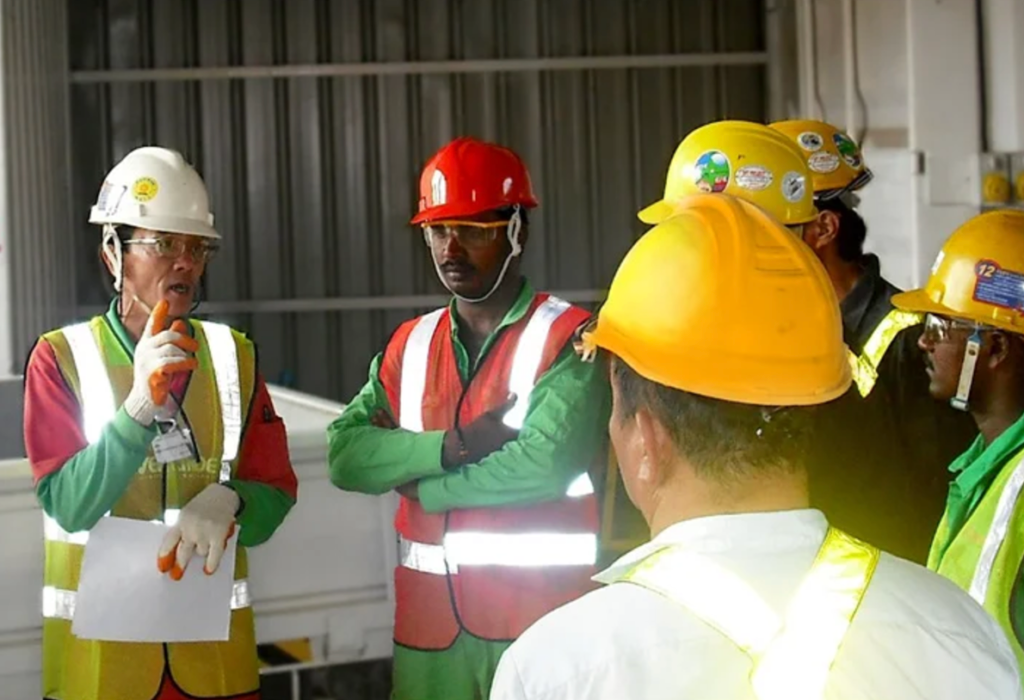Uncategorized
Why Crane Training Is Essential—Even for Experienced Operators
It may be tempting to believe that training is unnecessary for experienced crane operators. This is, however, not the case. In such high-risk work as construction and logistics in Singapore, training of crane operators is essential (whether they have experience or not). Even the most experienced person needs to undergo periodic training and a refresher course to be updated with changing protocols and compliance requirements.
The nature of crane equipment and the theory of its operation are not exempt from constant learning. The standards on workplace safety and health are dynamic processes, and continuous training is inevitable given that lives are the most important and standards have to be upheld in the industry, which is a demanding field.
Why Crane Training Is Important for Every Operator
Safety Risks Are Too High to Ignore
Handling any crane is a big risk that you just cannot afford to ignore. Be it a tower crane, crawler crane, overhead crane, or mobile crane, a single error can result in the loss of lives as well as expensive gear. Even trained operators can have a dangerous habit or loss of safety during training, and, without frequent training, knowledge of the latest updates can be lost.
Practical training prevents your workers’ abilities from going stale and their knowledge from falling behind. Refresher courses also aid them in recalling the best procedures when being put under pressure. They will also learn updated daily maintenance protocols that prevent equipment failures. Remember, complacency kills, and proper training prevents it from taking hold in your routine operations.
Regulations and Compliance Are Always Changing
Singapore regulatory and compliance changes occur on a regular basis, and workers must keep up to date. Although they are experienced crane operators, they must be informed of new regulations and complete renewed tests to maintain their certification. Government bodies constantly introduce safety standards, equipment specifications, and operational procedures all year round.
The result of these changes must be evident in how you train your crane operators through a qualified and approved training provider. Failure to stay updated on these requirements risks your employees’ certification and exposes your organisation to potential legal consequences. Not complying is not an option, but rather an ethical issue of the profession. Be at the forefront, providing courses to update the changes in the requirements and variations in the regulations.
Training Sharpens Skills and Prevents Complacency
Routine training courses and refresher lessons help even experienced operators avoid dangerous shortcuts. Over time, they might unconsciously develop unsafe habits that seem efficient but create serious risks. Continual training refreshes their memory on what should be done and accentuates rigging techniques.
It will equip them with knowledge on using certain machinery, such as jib or truck-mounted cranes, to be much safer and effective. New technologies and approaches that will enhance their performance are also presented to them through training sessions. Ensure your workers receive the training they need to keep them safe on any job site.
Career Growth and Job Site Versatility
Additional courses expand your workers’ skill set and make them more valuable on any job site. Specialised crane operator courses with options for tower, crawler, or overhead cranes, help them learn new skills and operate different machines confidently. Each course they complete as a learner adds to their professional toolkit.
It’s important to have workers who can handle multiple crane types and adapt to various site requirements. Their successful completion of training programmes shows dedication to excellence and safety. Leading institute providers offer comprehensive courses that boost their professional knowledge while improving workplace safety standards.
Upgrade Your Workers’ Skills with Jenmon’s Crane Operator Training Services

At Jenmon, we understand that effective crane training requires a comprehensive safety and skill development approach. We’ve designed our programmes to provide a complete solution for crane operator education and certification needs. Our training services enable your workers in any trade to enhance safety standards and increase productivity in lifting operations. We will work towards creating an accident-free working environment and, at the same time, promote industry-related standards that will guarantee improvement in the safety, flexibility, and productivity of crane lifting operations in this industry.
We have designed comprehensive programmes of crane training that meet the needs of crane operators in terms of their skill levels. Our training programmes include the basic methods of safe working with cranes and all of the maintenance and repair methods. We have organised our workflow to suit various learning types and speeds so that each learner is able to attain their new skills and knowledge in an environment that is friendly and comfortable. We are keen on pursuing new training concepts that are mutually helpful regarding higher security provisions, enhanced output, and lower operational costs.
Conclusion
Crane training is not a one-off affair; workers must continuously operate cranes safely as long as they are on the job. Whether working on a tower crane in a port or on a truck-mounted crane on a construction site, or doing daily checks or general maintenance of a crane, regular training maintains worker skills at a high level and keeps the workplace safe. With stronger safety records, fewer incidents, and a more capable team, the return on investing in continuous crane training is clear.
Experience shouldn’t lead to complacency within your team. Instead, establish a culture of continuous learning that reinforces professional excellence, ensures regulatory compliance, and builds a more reliable, versatile workforce. Consider engaging an accredited provider such as Jenmon to access all-around training services that help workers at the top stage of industry standards and safety requirements.




